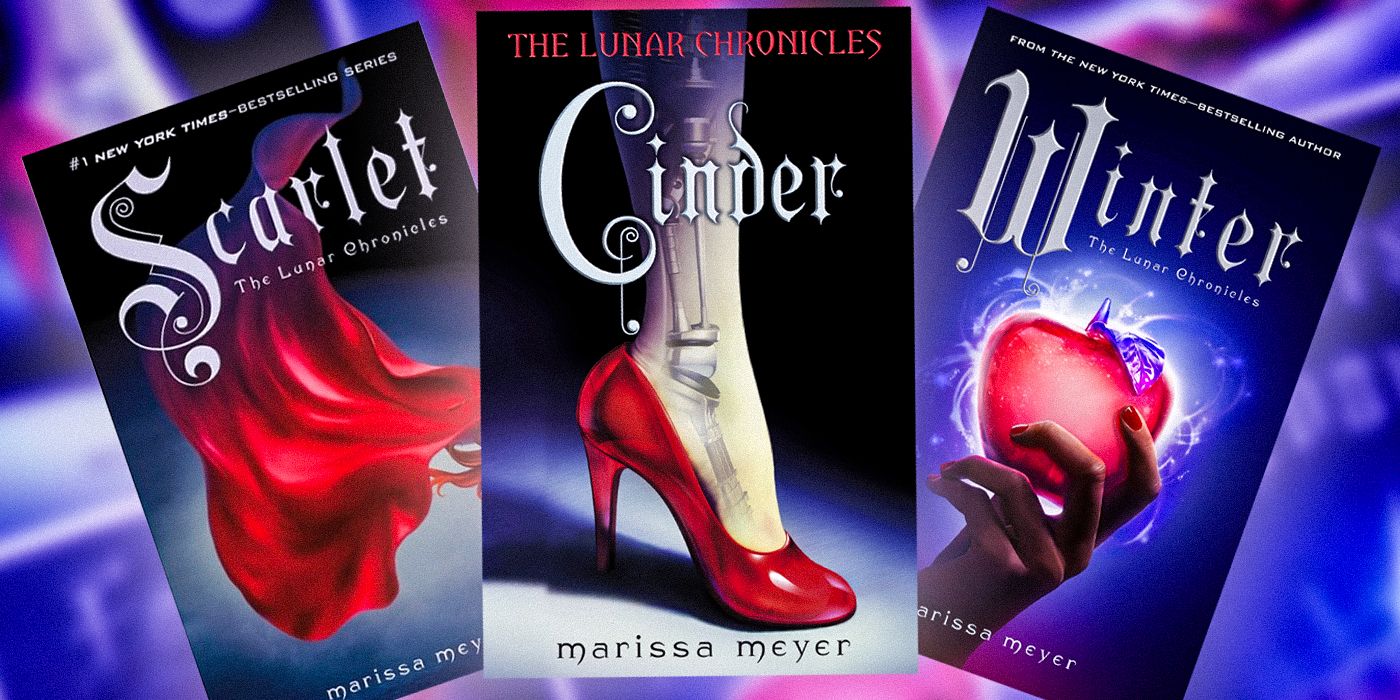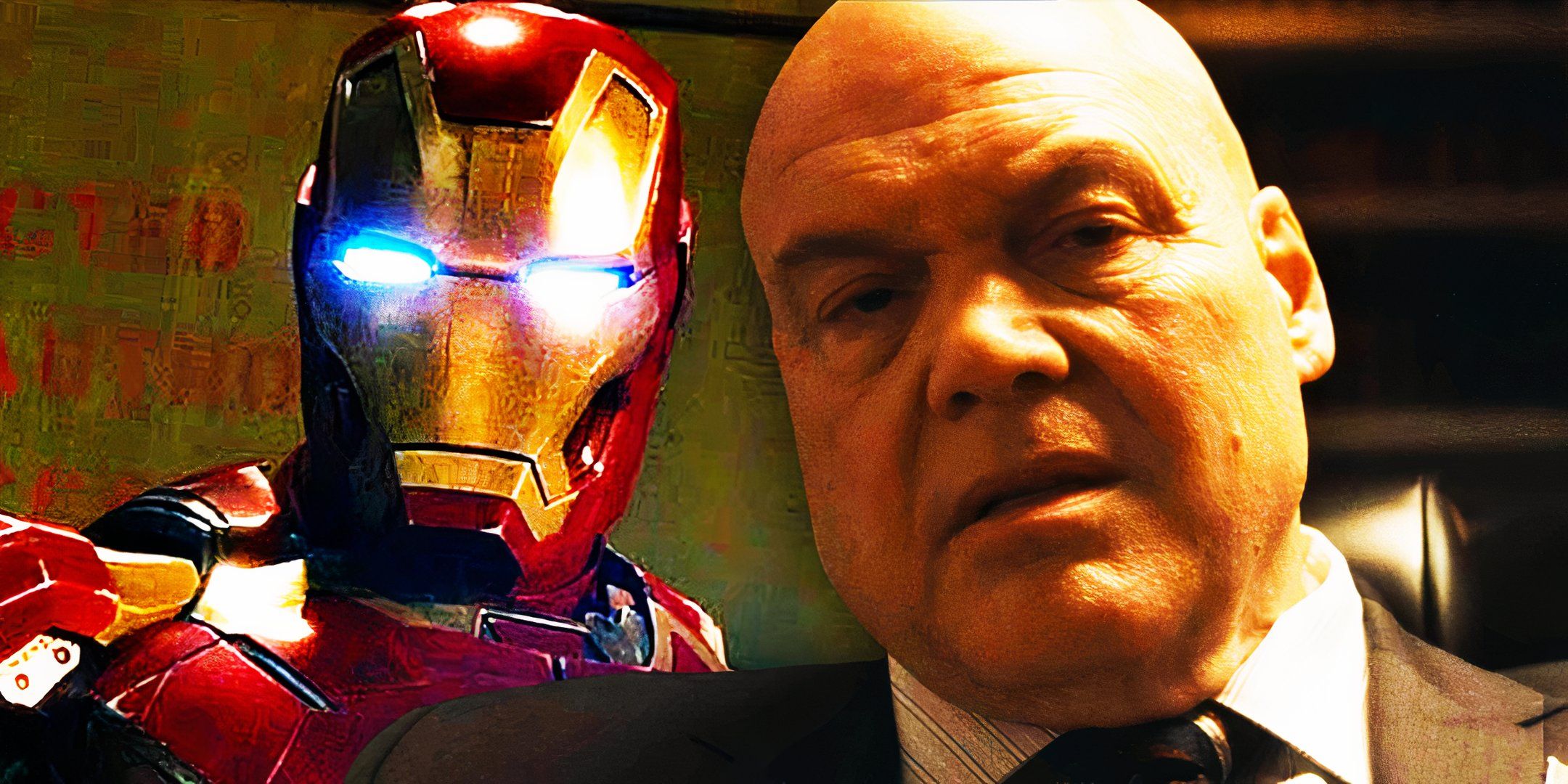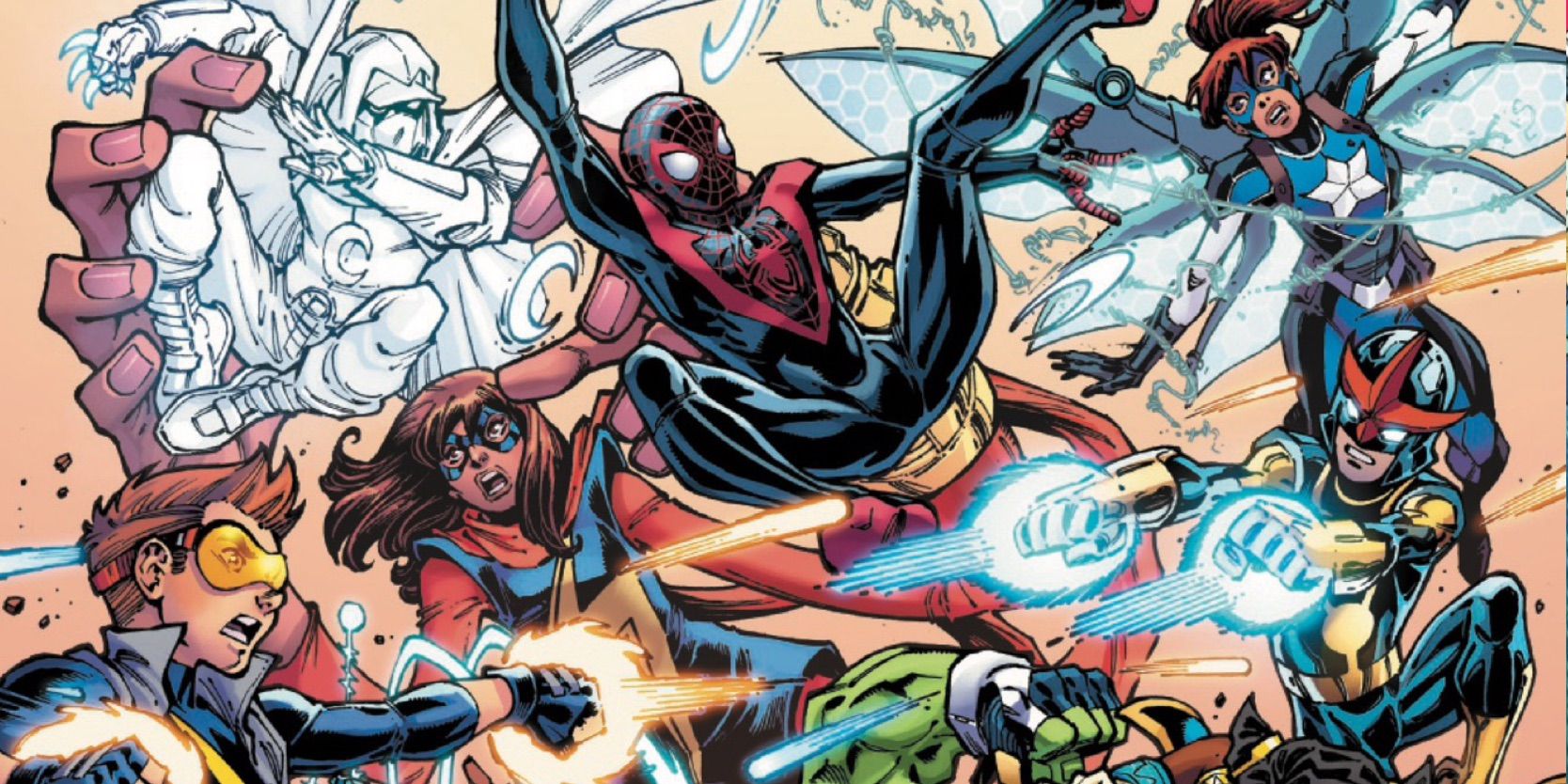10 Hash Realities Of Re-Reading The Lunar Chronicles Books, 9 Years After The Series Ended
Warning: This list contains spoilers for Marissa Meyer's The Lunar Chronicles novels.
Summary Winter, the final book in The Lunar Chronicles, has strange pacing with multiple climactic scenes.
The series lacks LGBTQ+ representation and fails to explore artificial intelligence issues, despite these seeming like obvious additions.
Scarlet and Wolf's relationship is unhealthy, while kidnapping storylines are romanticized, and the found family trope is poorly executed.
Almost a decade after Marissa Meyer's The Lunar Chronicles series was completed, some harsh realities about the novels have become harder to ignore. Comprising four novels, a novella, and a collection of short stories, The Lunar Chronicles weaves together retellings of several classic fairy tales in a futuristic sci-fi setting. In this setting, Earth's residents and rulers must manage shifting political alliances and rivalries with the people who live on Luna (the moon), as well as a devastating global plague with no cure.
Utilizing the popular young adult tropes of the time in a fascinating new world, The Lunar Chronicles became a best-selling series. However, some elements of The Lunar Chronicles were criticized at the time of release, while others have become more apparent in the intervening years. While Meyer has seen success releasing other novels — including an amazing standalone fantasy book and some sci-fi and fantasy book series worth committing to — The Lunar Chronicles struggles to endure the test of time.
Book Description Release Date Cinder The Lunar Chronicles book one; Cinderella retelling 2012 Scarlet The Lunar Chronicles book two; Little Red Riding Hood retelling 2013 Cress The Lunar Chronicles book three; Rapunzel retelling 2014 Winter The Lunar Chronicles book four; Snow White retelling 2015 Fairest Prequel novella focusing on the Evil Queen character, the series' main villain 2015 Stars Above A collection of short stories about different characters from the main series, with a Little Mermaid retelling featuring new characters 2016
10 The Lunar Chronicles' Final Book Has Strange Pacing
Winter, book four of The Lunar Chronicles, has several "final battles."
Anticipation was high for Winter, the fourth installment of The Lunar Chronicles which would bring the tale of Cinder's (the series' Cinderella character and de facto protagonist) attempt to reclaim the Lunar throne to an end. It also promised to feature beats from the Snow White plot, as the Lunar queen's stepdaughter Winter had been hinted at as a future main character throughout the series. Winter is an extensive and somewhat exhausting read, putting the main cast through one traumatic trial after another.
There are several points in Winter where it feels like the characters are at the story's climax — but then the reader realizes that more than half the book is left. Cinder goes through a confrontation with Queen Levana, escapes, ends up in another fight, and confronts her again. Other characters are captured and escape multiple times. Many other fights and other "it all ends here" type events happen throughout. Winter has the spectacle of a finale, but the outline could have been better revised, and it wouldn't have been such a confusing read.
Related 15 Most Anticipated Fantasy Book Series Coming Out The Rest Of 2024 It can be tempting to think the best fantasy releases of 2024 have already hit shelves, but there are even more exciting books arriving this year.
9 The Lunar Chronicles Has Nothing To Say About Artificial Intelligence
The Lunar Chronicles has no AI discourse, even though it is vital to the setting.
Art by @ace-artemis-fanartist
The Lunar Chronicles includes no debates about the humanity or rights of the AI characters.
Many highly advanced robots and AI appear in The Lunar Chronicles, some of whom are effectively human. The main cast includes Cinder's best friend Iko, who begins the series as an R2-D2-like robot but is later gifted the human-appearing body of an "escort droid" as a new house for her personality chip. However, The Lunar Chronicles includes no debates about the humanity or rights of the AI characters. It also never discusses the potential threat of AI, constituting concerns like those put forward by The Matrix and The Terminator.
The closest the series comes to this philosophical and ethical debate is the discrimination Cinder faces as a cyborg. Androids are products in The Lunar Chronicles' world, although the core group more or less treats Iko as a real person. "The Little Android" in Stars Above depicts an android falling in love with a human and sacrificing herself to help him escape with his girlfriend. However, the short story only exemplifies this deficiency; the android character suffers because she has no rights, but this issue plays no bigger role in the story.
8 Scarlet & Wolf's Relationship Is Creepy
Scarlet and Wolf's romance is built on problematic clichés of the YA genre.
Art by @candemarzat
In the second book, teenage Scarlet meets and falls in love with "Wolf," a genetically enhanced Lunar soldier. Because he has been genetically altered to have some of the attributes of his namesake, their relationship is vaguely animalistic, with Scarlet later proudly referring to him as her mate. The term "mate" is commonly used in YA fantasy romance to describe relationships among supernatural beings such as vampires and fae.
However, this Lunar Chronicles romance falls into some of the creepier clichés of the paranormal romance genre where the (usually male) love interest can't control himself and becomes threatening to his partner — and she forgives him because it's "not his fault." In the case of Wolf, his occasional attacks on Scarlet are partially due to instilled predatorial instincts and partially literal mind control (an ability of some Lunar people). However, it is generally not healthy that these interactions somehow translate into romance.
7 Kidnapping Storylines Are Romanticized In The Lunar Chronicles
Scarlet and Cress being taken from the group is used to show how much Wolf and Thorne love them.
Early on in Cress, Scarlet is taken by Lunar soldiers and is tortured on Luna. Wolf subsequently becomes distracted and volatile because he is consumed with worry that she is hurt or dead. A similar format is used to move forward the relationship between Cress and Thorne, the Rapunzel-and-her-prince characters in the series. While their relationship is still unofficial, Cress is separated from the rest of the group upon their arrival on Luna in Winter. She manages to remain hidden throughout the experience and is not harmed until she reunites with them.
Meanwhile, Cinder is surprised that Thorne is as upset as he is about Cress being gone. While there isn't anything inherently wrong about a character being worried about their partner's well-being when they are in a dangerous situation, it stands out that the story does this twice, and it is the female character in danger both times. Essentially, the narrative puts Scarlet and Cress through physical and mental trauma, so Wolf and Throne can be dramatically worried elsewhere to prove their love to the audience.
6 Cinder Resolves Luna's Government Problems Too Easily
Cinder fixes centuries of corrupt government on Luna in only a few years.
After all the characters endure a series of brutal battles to retake Luna and instill Cinder as queen, Cinder tells Kai that it can't last because Luna is one day bound to end up with another violent, self-serving monarch. She plans to turn Luna into a democracy; her appearance in Stars Above confirms that she accomplishes this within a few years. This seems implausible given that Luna has been run by scheming aristocrats and royals for centuries.
By creating a democracy, Cinder means to give power back to the impoverished lower class of Luna with the idea that they would elect people who would improve their lives. However, the narrative skips over the Lunar aristocrats resisting Cinder's efforts or their adapting to fabricating personas of benevolence to remain in power. Real politics is far more complicated than changing the entire structure of government in less than a decade, and it is unlikely that Luna is already the reformed country Cinder wants it to be.
5 The Lunar Chronicles Has No LGBTQ+ Characters
The Lunar Chronicles does not include any queer representation.
Art by @taratjah
All the main characters in The Lunar Chronicles end up in the heterosexual romantic pairings depicted in their respective fairy tales, with no alterations. While these romances are beloved by fans, the series as a whole doesn't measure up to its queer-inclusive contemporaries in this regard. The Lunar Chronicles came out at a time when more LGBTQ+ retellings were beginning to appear in YA literature, such as Malinda Lo's Ash. Additionally, popular fantasy series, including the Throne of Glass books or the Grishaverse, depict pseudo-fairy tale settings that include queer people and individuals.
A cast of characters including LGBTQ+ people would have made The Lunar Chronicles that much better. Instead, the futuristic fairy tale premise reinforces the idea of a false timeless universality attributed to the heteronormative versions of these stories. The Lunar Chronicles is therefore just another example of pop culture censoring queer stories when they are vital to the fantasy genre.
Related 15 Most Anticipated Romance Books Coming Out The Rest Of 2024 There are many exciting romance books coming out throughout 2024, and some of the most-anticipated new releases haven’t even hit shelves yet.
4 The Lunar Chronicles' Found Family Isn't As Good As Other Examples From Fiction
Other fictional found families illustrate how the one in The Lunar Chronicles isn't well-written.
Art by Julie Crowell
The cast of The Lunar Chronicles doesn't have the chemistry or the emotional necessity for the found family storyline to really work.
With each new fairy tale-inspired heroine introduced in subsequent additions to The Lunar Chronicles, that protagonist and the characters attached to her story join Cinder's gang of fugitives. However, the story doesn't dedicate enough time to developing the friendships between these characters. In the end, they all celebrate together as though they are a found family. However, it feels like they are just a group of people thrown together by circumstances who could have lived fine lives without each other.
Today, found families are immensely popular in pop culture, and many examples are much better than The Lunar Chronicles. The best found family relationships in TV shows, movies, and books convince the audience that, while the characters may have been brought together by chance, they reach a point where they could never imagine their lives without one another. The cast of The Lunar Chronicles doesn't have the chemistry or the emotional necessity for the found family storyline to really work.
3 The Lunar Chronicles' Depiction Of Asian Culture Is Not Well-Researched
The setting of New Beijing should have drawn more from real history and culture.
Art by @taratjah
The Lunar Chronicles has been praised by some for its diverse cast; however, it has also been criticized for the flattened depiction of a pan-Asian culture. Cinder grows up in New Beijing of the Eastern Commonwealth, ruled over by an emperor (first Kai's father, then Kai). It is said that at some point in history, most of Asia united to form one commonwealth. How exactly this territory came to be when readers have expressed skepticism that such a unification would ever take place is glossed over.
The setting of New Beijing and the Eastern Commonwealth constitutes a largely homogenous Asian culture, with mixed cultural signifiers; it doesn’t consider differences in the histories and cultures of distinct East Asian countries. Meyer chose to set Cinder in Beijing because the earliest version of the Cinderella story allegedly originated in China; she did the same with Scarlet and France based on Little Red Riding Hood’s origins (via marissameyer.com). However, more in-depth research was needed to create this fictional setting based on real people and places, and probably should have had a more complex structure than being one massive territory.
2 Fairest Isn't The Villain Origin Story The Lunar Chronicles Needed
The Lunar Chronicles' Levana is too terrible to sympathize with.
The story recounted in Fairest: Levana's Story is information that fans would have wanted to know. However, the way it is presented is disturbing. After being badly burned at a young age, Levana uses her glamour power to always obscure her true face. As a young adult, she becomes infatuated with Winter's father, a soldier in the Lunar palace. When Winter's mother dies in childbirth, Levana relentlessly pursues him until he has no other choice and agrees to marry her. Levana then attempts to have her late sister's daughter killed to secure the throne.
By telling the story from Levana's perspective, Fairest demonstrates how she associates all her self-worth with physical beauty and power, motivating her to do terrible things to hold on to both. However, her actions show that she doesn’t really deserve redemption while revealing additional details about the Lunar upper class. Fairest from another character's perspective could have given readers the same information while serving as a commentary on the culture of entitlement on Luna, making an interesting contribution to the overall story.
Related 10 Fantasy Duologies To Read If You Can't Commit To More Than Two Books Fantasy duologies including These Violent Delights, We Hunt the Flame, and Six of Crows offer brief yet complex stories to fans of fantasy literature.
1 The Lunar Chronicles Relies On The Long-Lost Heir Trope (& Doesn't Do It As Well)
Cinder's quest for the Lunar Throne has been done better many times before.
By the time of Cinder's release, the long-lost heir trope had been told and retold. The Lunar Chronicles relies on the most basic version of this storyline where the heir was too young when they were taken away to remember where they were born. After her aunt attempted to murder her as a child, Cinder was protected and raised by a network of rebels on Earth, until she is informed of her identity as a young woman. From there, she sets out on a mission to reclaim the throne in a narrative with little nuance.
Cinder decides that a monarchy doesn't work, but she has no problem marrying into a different one after she gives up her inheritance. What would have been a much more interesting discussion is questioning whether she would have been just as bad as Levana if she had grown up as a spoiled Lunar princess. Like with several other storylines, The Lunar Chronicles defaults to a clichéd and simplistic formula for the long-lost heir plot. However, this does not seem to have hindered the series' success.











COMMENTS